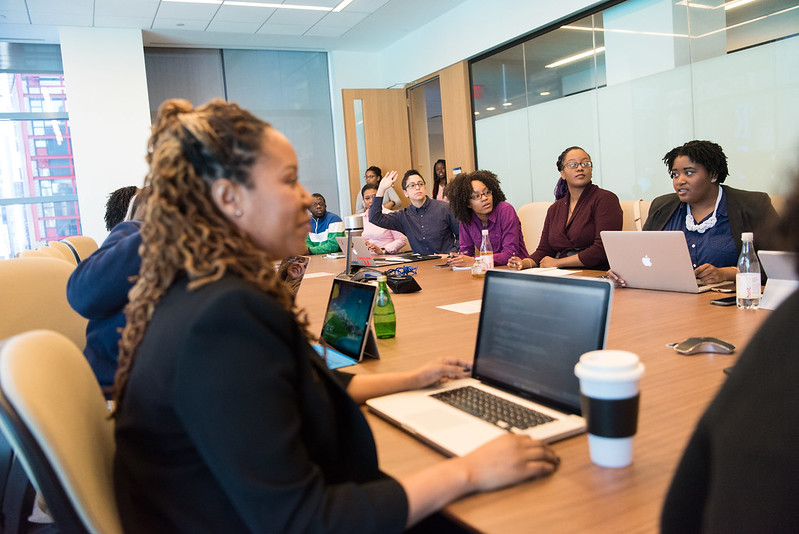David Wiley, PhD, Chief Academic Officer
As my colleagues at Lumen and I have reflected on our mission – to enable unprecedented learning for all students – we’ve come to realize that while creating highly effective, highly affordable OER courseware moves us toward that goal, it will never get us there by itself. Because faculty play a larger role in students’ success than course materials do, we’ve come to understand that our desire to enable unprecedented learning for all students requires us to support the professional development of faculty, too.
What should that professional development look like? This question got me thinking about some personal history.
When I took my first full-time job at a university in the mid-90s, I became Marshall University’s first webmaster and instructional technologist. In addition to running the University website and chairing the university committee that established policies governing online courses (no, really), I also conducted professional development seminars for faculty and staff. These mid-90s professional development seminars looked much like they still do today – one hour lunchtime workshops that, when budget allowed, included a free meal as an inducement to attend.
If you know anything about the design of effective learning experiences, you won’t be surprised to hear that a single, one hour exposure to Netscape (or WebCT, or Alta Vista, or emergency remote teaching, or any other subject) was not sufficient for faculty to “achieve mastery.” On the contrary, the “one hour professional development workshop” model is in many ways the epitome of cramming – a single, dedicated burst of attention whose learning effects almost certainly fade away before people get in their cars and drive home at the end of the day. Leading those lunchtime workshops, and attending more of them once I became full-time faculty, I eventually realized that faculty are people too – by which I mean that faculty need just as much repetition and practice and feedback as other learners do in order to really learn something.
These professional development workshops also tended to be (and today often still are) somewhat decontextualized. After all, you can have faculty from potentially any discipline, using a wide range of course materials and supporting technologies, as well as staff from any campus department or office. Examples that are too specific to one context might clarify issues for some attendees while confusing or alienating others. Consequently, these lunchtime workshops tend to stay at a fairly high level, leaving attendees with the task of connecting the workshop’s contents to their own individual contexts. As I mentioned above, faculty are people too. They struggle just as much as other learners with “transfer” – or understanding how to effectively recontextualize the things they hear about in a workshop to the “real world” context of their teaching and research.
Personal reflections like this from across our team – triangulated and augmented with a review of relevant research – helped us understand that effective professional development needs to:
- Center evidence-based teaching practices
- Be contextualized in a way that makes it immediately useful to faculty
- Last long enough for faculty to practice in their classes and receive feedback
- Leverage the experience, passion, and persuasion of a network of peers
Implementing the New Model
Success Accelerator is our first implementation of the new model. In Success Accelerator, faculty learn about evidence-based teaching practices in the context of Lumen’s Waymaker or OHM courseware. Success Accelerator is designed as a six week learning circle and happens inside the Lumen Circles platform. Weekly readings introduce faculty to evidence-based teaching practices. Weekly assignments provide faculty with concrete ideas about how to implement one or more evidence-based teaching practices in their classrooms using their courseware. (For example, one concrete idea includes detailed guidance about how to configure and use Waymaker’s messaging functionality to show students that faculty sincerely care about their success.) After implementing the evidence-based teaching practice, faculty return to the Lumen Circles platform to write a reflection that is shared with all the faculty in their circle. In-platform scaffolds (tags) help faculty identify the specific evidence-based teaching practices they used during their practice and reflect on what worked well and what didn’t. Each week the platform randomly assigns each participant to two peers whose reflections they read and provide feedback on. A facilitator helps the whole process run smoothly.
This new model allows faculty to learn and apply evidence-based teaching practices while simultaneously learning to leverage the evidence-based tools designed into their courseware. We hypothesize that this integrated approach to courseware and professional development designed around evidence-based teaching and learning practices will dramatically improve student outcomes. Specifically, we believe the impact of the new model will be larger than adding the effects of adopting OER or OER courseware to the effects of participating in traditional professional development. We’re beginning formal tests of this hypothesis next year and I look forward to the opportunity to report the results back to the broader teaching and learning community.
The featured image for this post, wocintech (microsoft) – 161 by WOCinTech Chat, was downloaded from https://flic.kr/p/EFwJxG and is licensed CC BY.

